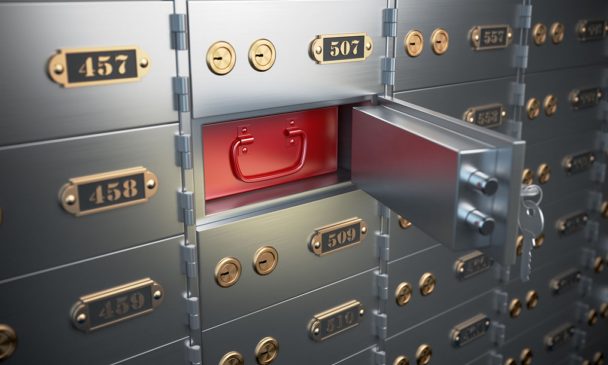VersaBank, formerly Pacific & Western Bank of Canada, announced one of its subsidiaries has completed beta testing for its digital safety deposit box and is now entering the commercialization phase, which will include the offering of digital safe keeping as well as multi signature services for cryptocurrency exchanges and crypto-based investment funds.
Canadian VersaBank Announces Digital Safety Deposit Box for Cryptocurrency Holdings
The testing phase of the company’s digital safety deposit box was conducted to ensure the product’s design would meet the specific requirements of cryptocurrency exchanges and crypto funds. Target clients tried VersaVault’s capabilities, including its technologically advanced digital, cyber-security solutions, and privacy settings. David Taylor, President and CEO of VersaBank and its subsidiary, VersaVault, claims the product cannot ‘drill’ into a client’s digital safety deposit box nor can look inside, giving full privacy to the customer.
“I am just delighted with the successful results of our strenuous beta testing. While many are considering ideas and plans for a digital safety deposit box, we have designed and built it, and are now commercializing a first of its kind service that provides our clients with the most sophisticated security and authentication technology available globally, in which our clients enjoy absolute privacy. The VersaVault will now begin rolling out services to cryptocurrency exchanges and crypto investment funds.”
VersaBank, which is Canada’s smallest bank by assets, planned to have the digital vault operational by June in order to offer the service to customers across the globe. The bank first reached out to cybersecurity expert Gurpreet Sahota from BlackBerry. Sahota led software engineers in designing the vault, which is stores cryptocurrencies on computer servers around the world.
Calling physical safety boxes obsolete, chief executive David Taylor says VersaVault fulfills the same goal, which is safety and security, but for today’s needs. “Most people’s really valuable assets are contained in some sort of digital format, whether it be a deed or a contract or a cryptocurrency.” The bank has no back door to open up the vault, Taylor claimed.
The bank first went digital when it adopted an electronic branchless model in 1993 and became the world’s first branchless financial institution in 1993. The safety deposit box announcement puts the Canadian bank again in the lead, but other players will be competing for customers. Goldmoney Group, a Canadian-based precious metal custodian, has expanded its business to include secure storage of Bitcoin in early 2014. Its new firm, Netagio, will be responsible to hold custody of clients’ digital assets.
Image from Shutterstock




